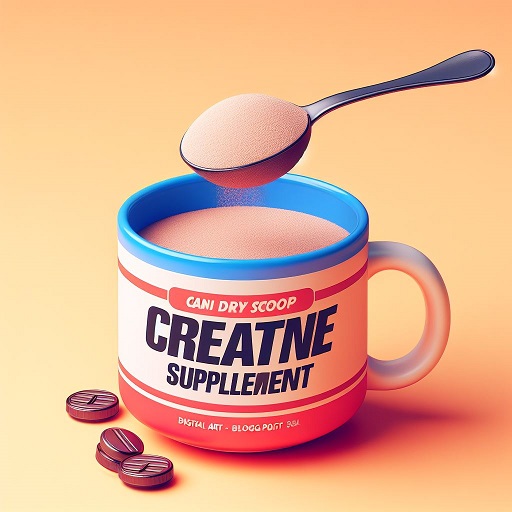How Much Water Should I Drink When Taking Creatine
There isn’t a one-size-fits-all answer to how much water you should drink when taking creatine, but research suggests that increasing your water intake is important. Creatine helps draw water into your muscles, so staying hydrated is key to optimizing its effectiveness and avoiding dehydration.
Here’s a guide on how much water to drink when taking creatine:
- At least 8 ounces with each creatine dose:
Regardless of whether you’re loading or taking a maintenance dose, it’s recommended to consume at least 8 ounces (240ml) of water when taking creatine. This helps ensure proper absorption and avoid any stomach upset.
- Increased daily intake:
When taking creatine, you’ll generally need to up your daily water consumption to stay hydrated. A good starting point is to add an extra 750ml (25oz) on top of your regular water intake. This can go up depending on several factors.
- Factors affecting water needs:
Individual water needs can vary depending on body weight, activity level, climate, and diet. Here’s a breakdown:
- Body weight: Larger individuals naturally need more water than smaller ones.
- Activity level: If you exercise intensely or sweat a lot, you’ll need to replace those fluids.
- Climate: Hot and humid environments increase sweat rate, requiring more water intake.
- Diet: A diet rich in fruits and vegetables can contribute to your fluid intake, while diuretics like caffeine can increase urination and dehydration risk.
- General recommendations:
- A typical recommendation for adults is around 2 liters (64oz) of water daily.
- Active adults may need 3-4 liters (100-133oz) per day.
- If you’re loading creatine and highly active, you might need upwards of a gallon (4 liters) daily.
Monitoring hydration:
Here are some signs you might be dehydrated:
- Feeling thirsty
- Dark-colored urine
- Fatigue
- Dizziness
- Headache
If you experience any of these, increase your water intake and consult a healthcare professional if needed.
Remember, these are general guidelines. It’s always best to consult a doctor or licensed dietician for personalized advice on creatine use and hydration needs.
How Much Water to Drink During Creatine Loading Phase
During the creatine loading phase, where you take higher doses to saturate your muscles, water intake becomes even more crucial. Here’s how much you might need:
Increased intake: Generally, aim for 1.5 to 2 times your usual water intake. This can translate to around 3-4 liters (100-133oz) per day for most people.
What Happens if You Take Creatine and Don’t Drink Enough Water
When you take creatine and don’t drink enough water, it can lead to a few negative consequences:
Reduced effectiveness:
Creatine helps draw water into your muscle cells, which plays a role in its benefits for muscle growth and performance. Without sufficient water, creatine’s ability to function optimally is compromised.
Dehydration:
This is the main concern. Creatine pulls water into muscles, but if there’s not enough water overall, your body can become dehydrated. Dehydration can cause symptoms like fatigue, headache, and dizziness.
Potential kidney strain:
Your kidneys play a key role in filtering waste products. Dehydration puts extra stress on your kidneys, and while creatine is generally safe for healthy individuals, dehydration on top of creatine intake might be problematic for kidney function, especially if you already have pre-existing kidney issues.
Here’s a quick recap:
Creatine needs water to work well.
Dehydration is a risk, leading to fatigue, cramps, and other issues.
Dehydration might put strain on kidneys, especially for those with pre-existing problems.
By staying well-hydrated, you can avoid these complications and ensure creatine functions as intended.
Can You Take Creatine without Water(by Itself)
It’s not recommended to take creatine without any liquid (by itself). Here’s why:
- Choking hazard:
Creatine powder can be fine and inhaling it could irritate your lungs or cause choking.
- Digestive issues:
Taking concentrated, undiluted creatine can irritate your stomach and lead to digestive discomfort.
- Reduced absorption:
Creatine dissolves better in liquids, so taking it without water might hinder its absorption by your body.
If you dislike the taste of plain water, you can mix creatine into other beverages like juice, sports drinks, or even smoothies.
Can you dry scoop creatine
Technically, you can dry scoop creatine, meaning taking the powder directly without mixing it with any liquid. However, it’s strongly discouraged for several reasons:
No benefits: There’s no scientific evidence to suggest dry scooping creatine enhances its absorption or effectiveness.
Health risks: Dry scooping poses several health risks, including:
Choking hazard: The fine powder can be inhaled, causing irritation or choking.
Digestive problems: Undiluted creatine can irritate your stomach and lead to discomfort.
Less effective: Creatine mixes better in liquids, and dry scooping might hinder its absorption by your body.
Unpleasant experience: Creatine powder can taste bland or unpleasant on its own, and it can stick to your mouth and throat, making it difficult to swallow.
In conclusion, while you can dry scoop creatine, it’s not recommended. It offers no advantages and comes with potential health risks. It’s safer and more effective to mix creatine with water or another beverage as directed on the product label.
Conclusion
In summary, the amount of water to drink when taking creatine varies depending on individual factors such as body weight, activity level, and climate. However, maintaining proper hydration is crucial for optimizing creatine’s benefits and avoiding potential side effects like dehydration and digestive issues. During the loading phase, it’s especially important to increase water intake. Avoiding dry scooping of creatine is recommended due to potential health risks and reduced effectiveness. Ultimately, consulting a healthcare professional for personalized advice on creatine use and hydration needs is advisable.
